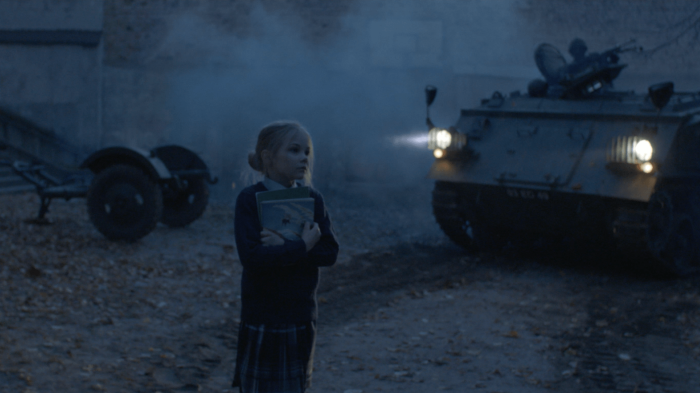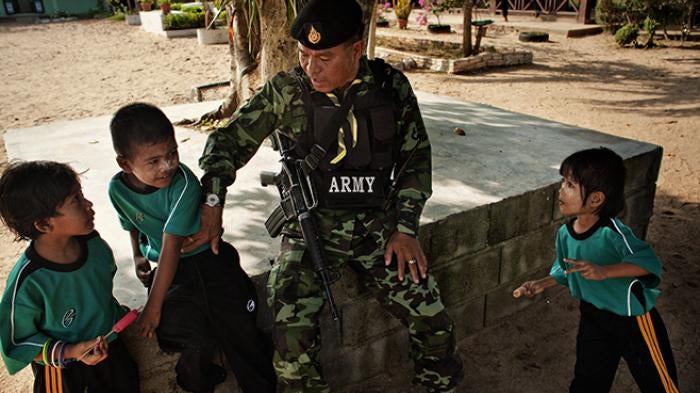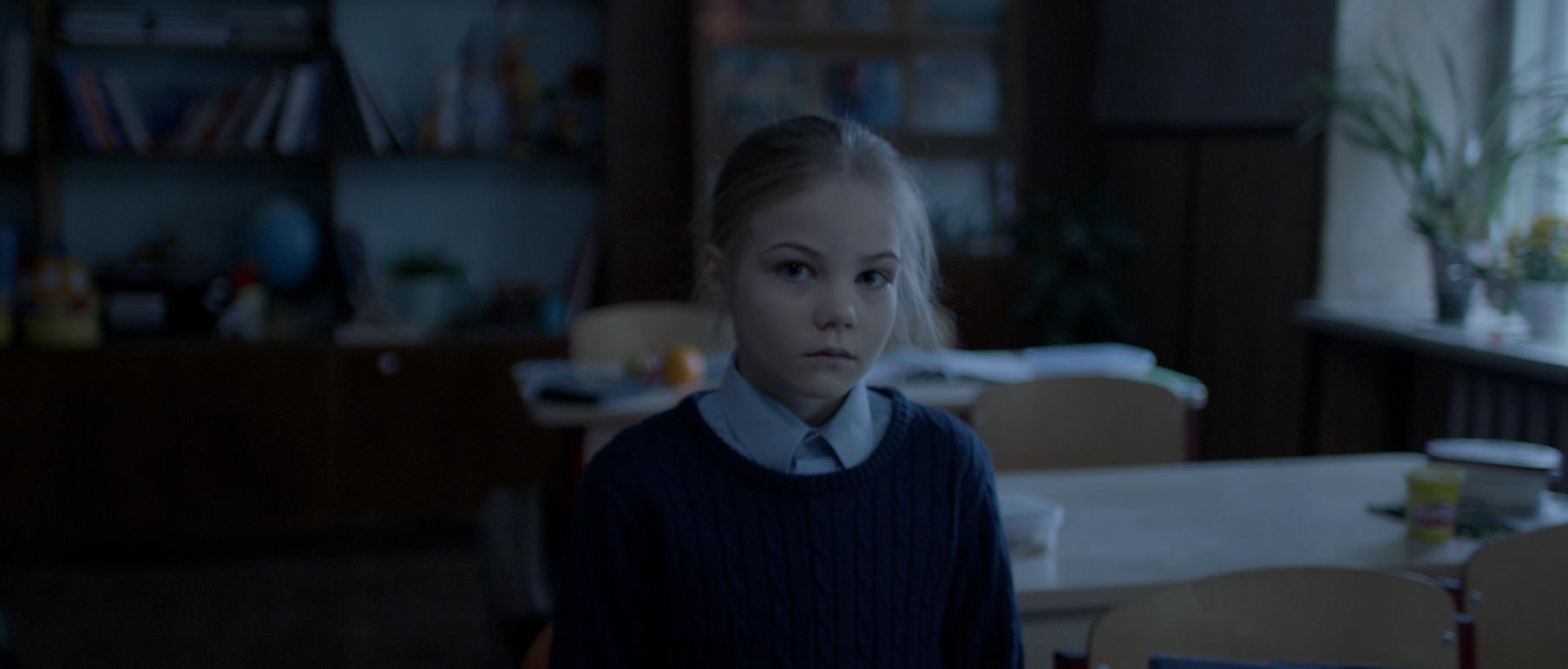French President Hollande should #ProtectSchools from military use. It's time for France to sign the Safe Schools Declaration.
Act Now
“Attacks on students and schools is a global problem in desperate need of a global response,” said Bénédicte Jeannerod, France director at Human Rights Watch. “The Safe Schools Declaration lays out many common-sense steps that committed countries can voluntarily take to help ensure that students and schools are better protected even during times of war.”
Fifty-six countries have already endorsed the Safe Schools Declaration, including half of the European Union member states, 13 NATO members, and 12 La Francophonie member countries. Many of the countries most affected by the problem of attacks on schools and military use of schools have joined the declaration, including Afghanistan, the Central African Republic, the Democratic Republic of Congo, Somalia, South Sudan, and Sudan. A second Safe Schools conference will be hosted by the government of Argentina on March 28-29, 2017.

France has previously championed the Paris Commitments, a declaration focused on the protection, liberation, and rehabilitation of children involved in armed conflict. So far, 105 countries have endorsed these Paris Commitments, and France will host a conference to mark the 20th anniversary of that process in February 2017. But it has not yet endorsed the Safe Schools Declaration. France should make it a priority.
Improved efforts to protect schools from attacks are desperately needed in many places around the world. According to the Global Coalition to Protect Education from Attack, there was a pattern of attacks on students, teachers, or schools in at least 30 countries between 2009 and 2013.
Schools have also frequently been used for military purposes. Schools were converted into military barracks or bases in at least 26 countries with armed conflict between 2005 and 2015 – the majority of the countries with armed conflict during that period. Sometimes soldiers take over a school entirely, but often they use just a part of the school – a few classrooms, an entire floor, the playground – and in doing so expose students to attack or other violence. In the worst cases, children and teachers have been injured and killed and schools damaged or destroyed as belligerent forces attack schools because military forces had been using them. Soldiers using the schools have sexually assaulted and harassed the children there, and unlawfully recruited children into their armed groups.

The educational consequences of military use of schools can include high student dropout rates, reduced enrollment, lower rates of transition to higher education, overcrowding, and loss of teaching time. The presence of soldiers is especially threatening to girls, and their parents are especially likely to keep them out of school when soldiers move in.
Countries that endorse the Safe Schools Declaration pledge to restore access to education when schools are attacked, and undertake to make it less likely that students, teachers, and schools will be attacked in the first place. They agree to deter such attacks by promising to investigate and prosecute war crimes involving schools, and to minimize the use of schools for military purposes so they do not become targets for attack.
The Safe Schools Declaration also builds an international community of nations committed to respecting the civilian nature of schools, and developing and sharing examples of good practices for protecting schools from attack and military use.
At the United Nations Security Council, France has condemned attacks on schools and stated that military use of schools should be avoided. In June 2015, France voted for a resolution that encouraged all UN member countries to take “concrete measures to deter … use of schools by armed forces and armed groups.” However, France has yet to heed its own recommendation, Human Rights Watch said. Although France has laws making an attack on a school a possible war crime, it has no laws or military regulations explicitly protecting schools from being used for military purposes.
“France has a strong tradition of advocating for the protection of children during armed conflict,” Jeannerod said. “Endorsing the Safe Schools Declaration would demonstrate France’s commitment to ensure that French soldiers deployed abroad will do their utmost to neither endanger students nor interfere with their education.”







